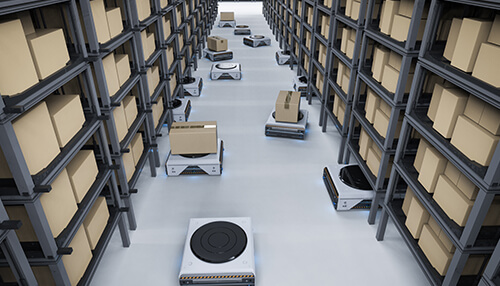Artificial intelligence (AI) is a collection of technologies that make computers perform tasks that were not possible without them. In logistics, AI can be used to make warehouses and distribution centers more efficient and productive.
AI technology can help companies improve their supply chain management by enhancing the way it operates.
Artificial intelligence is transforming logistics by providing a faster, more efficient way to deliver products.
In fact, AI-powered technology has already changed the landscape for e-commerce companies, allowing them to provide customers with more personalized experiences and better customer service.
AI is also helping companies like Amazon and Walmart automate manual processes to make shipping faster and more accurate — even when it comes to inventory management.
Here Are Five Ways Ai Is Transforming Logistics:
1. Self-driving cars
Self-driving cars are already a reality and they could also be a big part of the future of logistics. According to EY, the adoption of self-driving vehicles could result in more than $1 trillion of savings on transportation costs by 2030. As a result, autonomous transport will reduce congestion and pollution, improve safety and reduce traffic accidents.
Self-driving cars are one of the most obvious ways that AI is transforming logistics. By 2035, it’s estimated that there will be 5.5 million driverless vehicles on the road in the U.S. alone, according to a study by McKinsey & Company. That’s a lot of autonomous vehicles and they could have a significant impact on the logistics industry.
Self-driving cars could help reduce traffic congestion by up to 25 percent, according to research conducted by RAND Corporation and funded by Uber Technologies Inc., Ford Motor Company and others. They also could make it easier for companies to deliver goods in less time because they would be able to navigate city streets and avoid delays caused by other drivers or pedestrians.
2. Warehouse robots
The invention of robots has improved warehouse management a great deal. Robots are being used in warehouses, factories, distribution centers and many other places where they can increase efficiency and improve productivity. They can move materials faster than humans can and they don’t get tired or distracted easily like humans do. The use of robots has increased over the years as more companies realize their benefits and how they can help them save time, money and resources when it comes to running their businesses efficiently.
3. Robotic Process Automation (RPA)
The use of artificial intelligence to automate tasks is becoming more common in logistics. RPA involves automating business processes, such as data entry, customer service, and order fulfillment. This helps businesses get rid of repetitive tasks that are usually done by human beings. For example, using one computer program to fill out millions of customer orders every day creates huge savings for companies like Amazon.
4. Collaboration across silos
AI can be used to help companies collaborate across different departments, including sales, customer service, finance and IT. For example, a company may have separate teams managing its IT and sales departments. An AI system could help each department do its job more efficiently by identifying patterns and making recommendations on how to improve workflow efficiency or customer satisfaction.
5. Supply chain optimization
AI can identify product trends and recommend new products that will sell well in the market. This can help companies develop new businesses or expand their existing ones. An example of this would be if a company were selling an item that was popular with consumers but wasn’t selling well because there weren’t enough suppliers producing it. A system could analyze data from retailers’ supply chains and suggest new suppliers who might produce enough supply to meet demand at a lower price point than existing suppliers without sacrificing quality or reliability of service levels.



